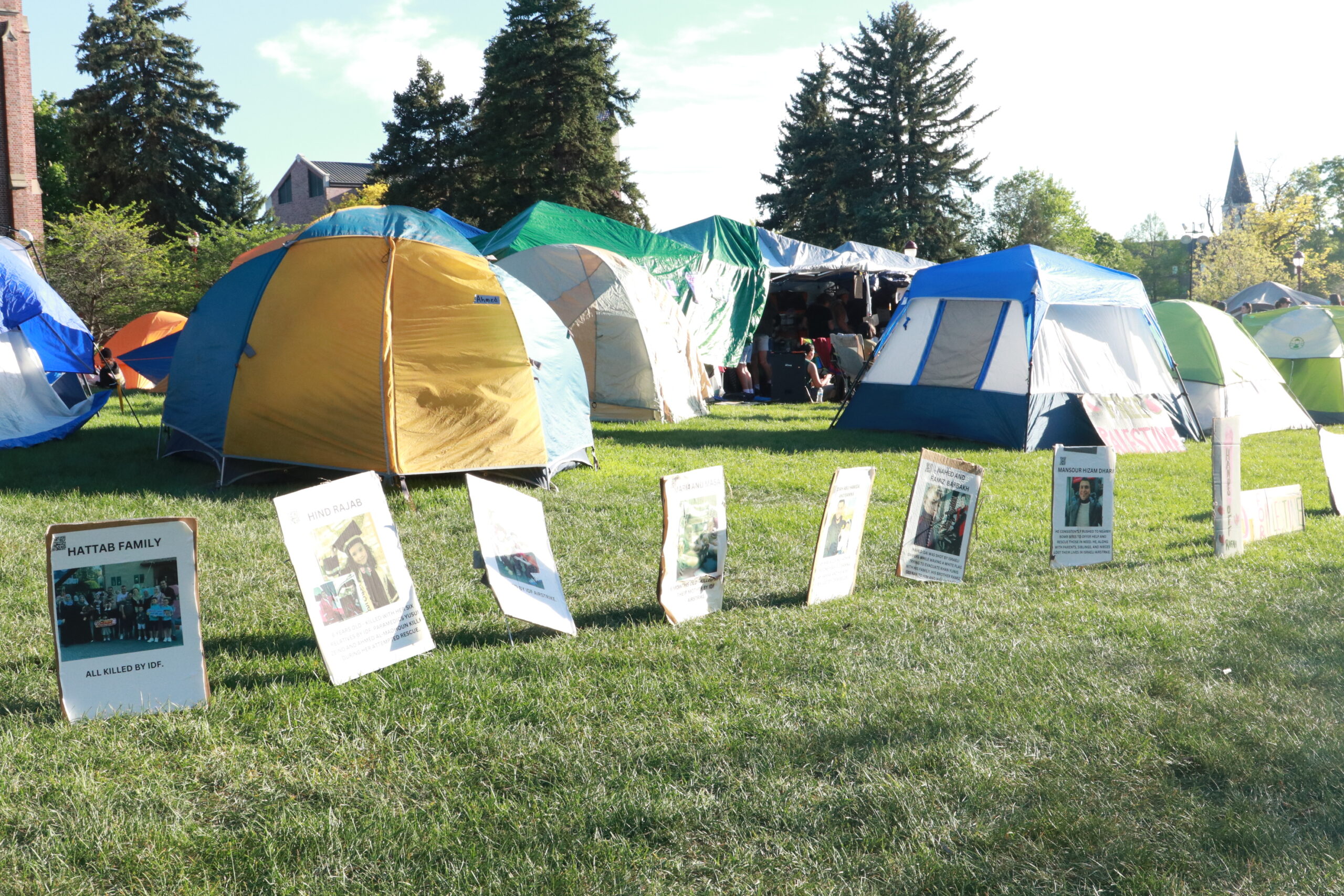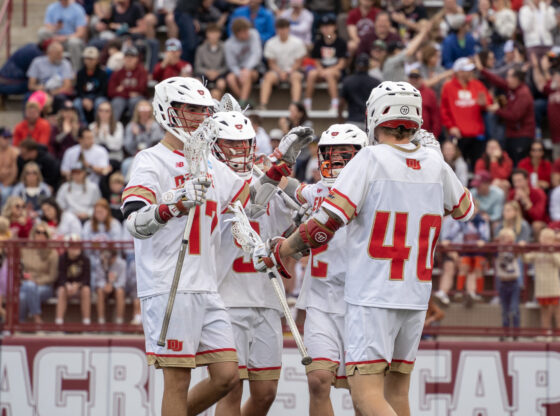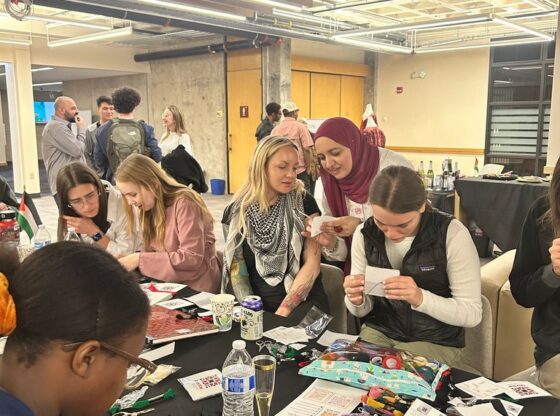The average college student hears anti-gay slurs several times a day.
Women aged 19 to 24 earn only 94 percent of what their male counterparts make.
African-Americans aged 12 and older are the most victimized group in America. About 41 out of of every 1,000 are victims of violent crimes, not including murder.
In an effort to education and inform students about the inequalities that exist in our world today, five conference rooms behind Jazzman’s Café in the Driscoll student center were transformed into vignettes of oppression and discrimination last Wednesday. The Tunnel of Oppression, which has run annually since 2004 and drew a crowd of about 70 over the course of the afternoon, offered students the opportunity to walk through five different rooms, each one illustrating intolerance and prejudice in a different way.
“This event needs to be on this campus. It’s been fairly successful in past years, and it helps organizations come together and not be isolated,” said junior Jazmin Muro, a member of the Latino Student Alliance. “It’s meant to be in-your-face.”
Students were invited to buy cookies at the Misogyny Bakery in one room. Participants were given nametags and a number of colored poker chips upon entering the room, which symbolized the student’s new identity and the amount of money in their wallet.
One of the students, wearing a nametag that labeled him a “white male,” bought the most expensive cookie offered at the bakery. Junior Moises Munoz, a member of the Queer Straight Alliance (QSA), played the biased baker and commented on how nicely the man was dressed and even offered him another cookie on the house.
When the student wearing the “Asian female” nametag stepped forward, Munoz immediately stiffened. The student asked for a cheaper cookie.
“That will be 40 cents,” Munoz said, enunciating each word carefully and bowing, his hands clasped together at his chest. “Thank you.”
Prejudice was brought to the local level in a room sponsored by the Asian Student Alliance, where students watched a video about an article written by CU student and section editor Max Karson and published by the University of Colorado Campus Press on Feb. 18, titled “If it’s war the Asians want… it’s war they’ll get.”
The YouTube video, which can be seen at http://in-solidarity.com/, likened the attitudes in the article to those that spurred Japanese internment camps in 1942, where over 20,000 Japanese Americans were rounded up and forcibly relocated following Japan’s attack on Pearl Harbor because of their race or ancestry.
Toward the end of the video, white text on a black screen read: “If we are passive, we imply this treatment is okay.”
“I do think there is a lack of activism and empathy on this campus,” said QSA president Christopher Turner, who helped run one of the rooms. “People would rather ignore the issues than try to help make a difference.”
The Tunnel of Oppression’s goal was to help counteract this trend.
“I’m here for personal growth and personal experience,” said senior participant Jimmy King. “It’s important for people to know what it’s like to be in someone else’s shoes – what it’s like to be like someone that is different from you.”











